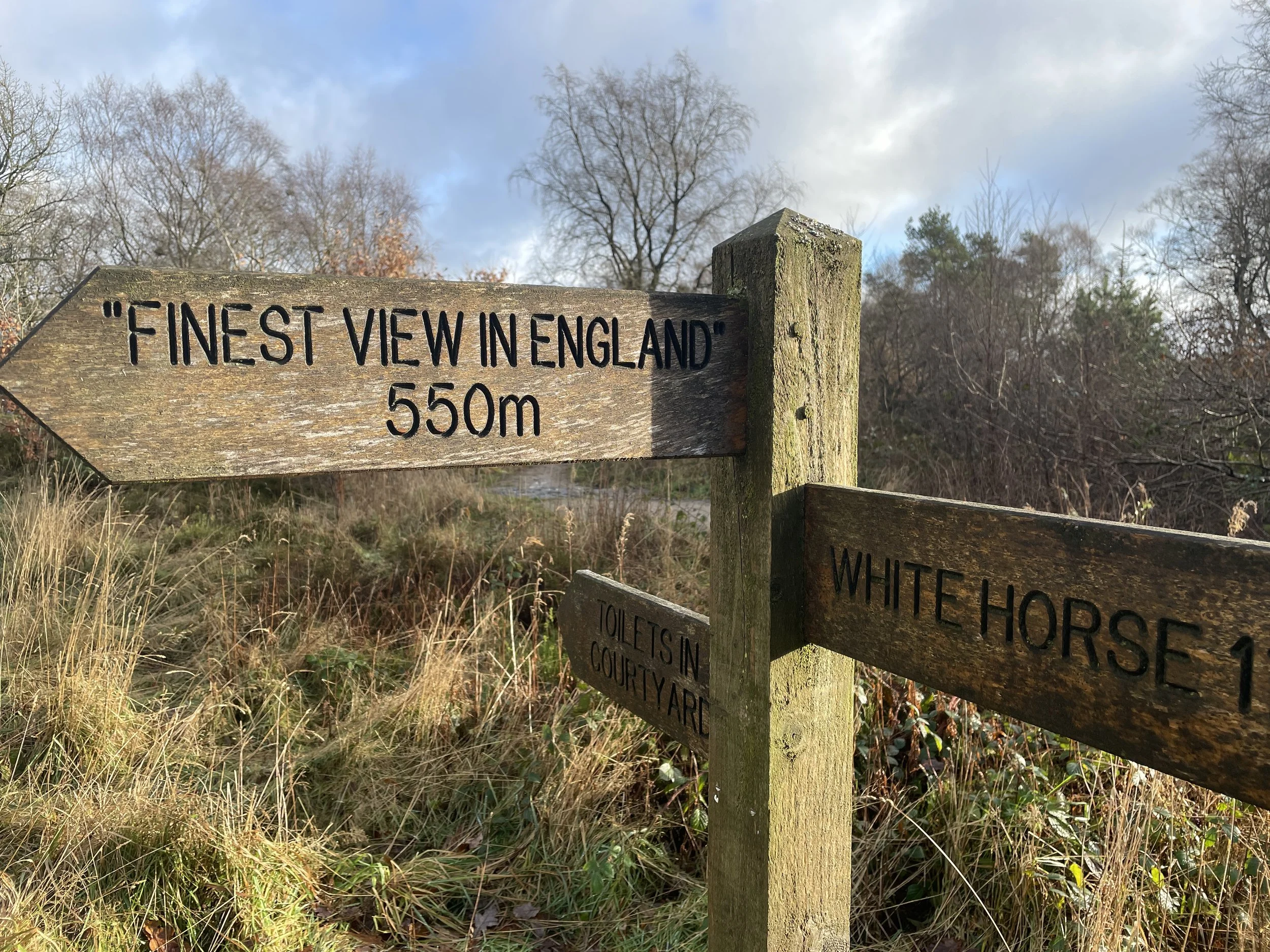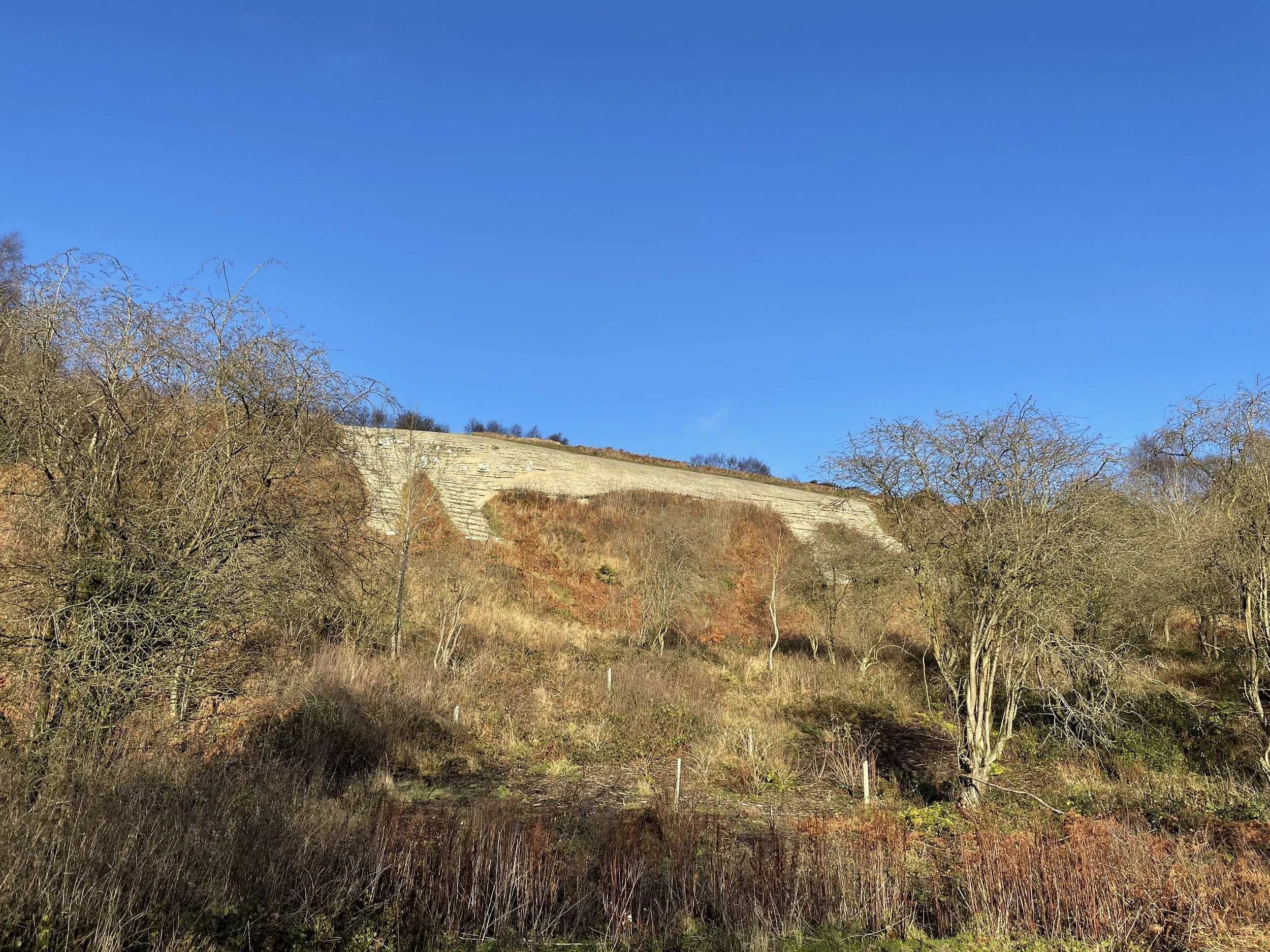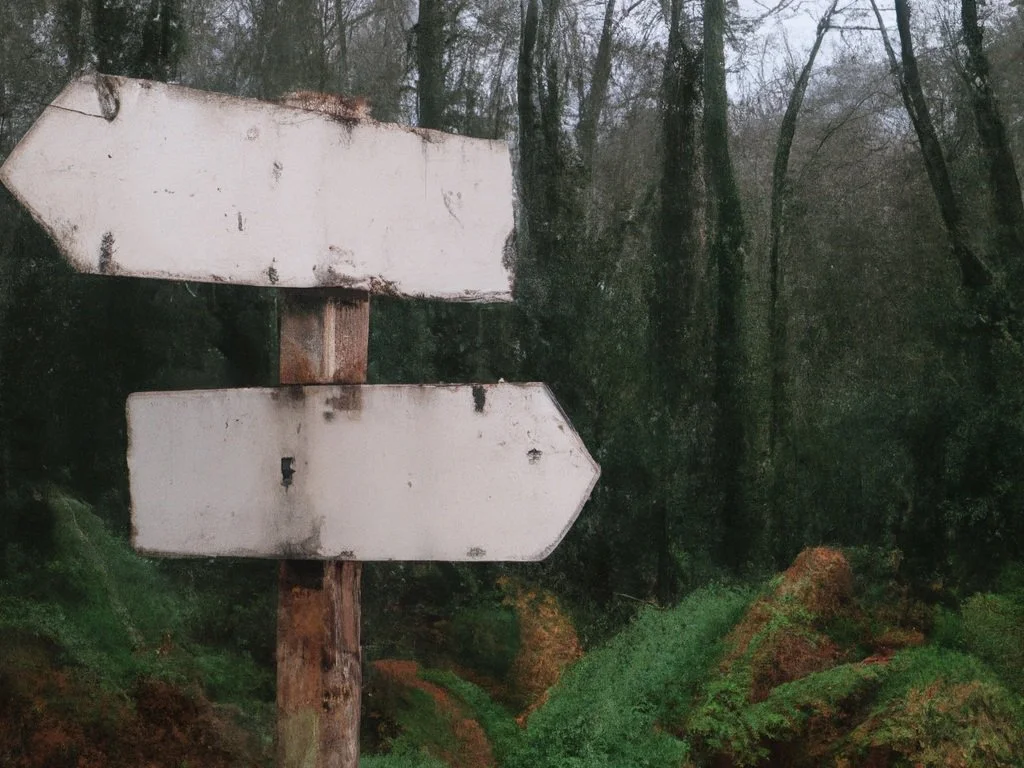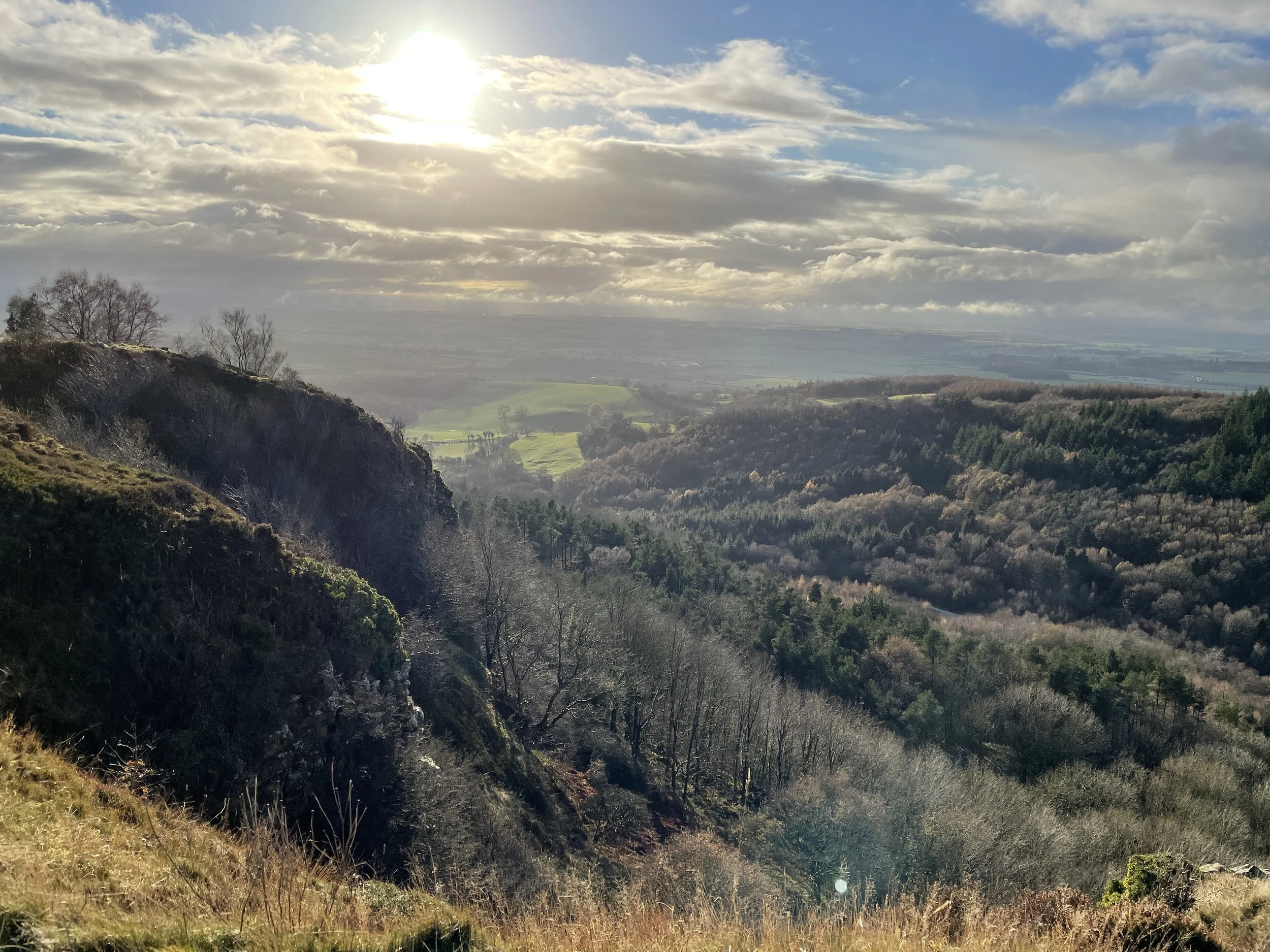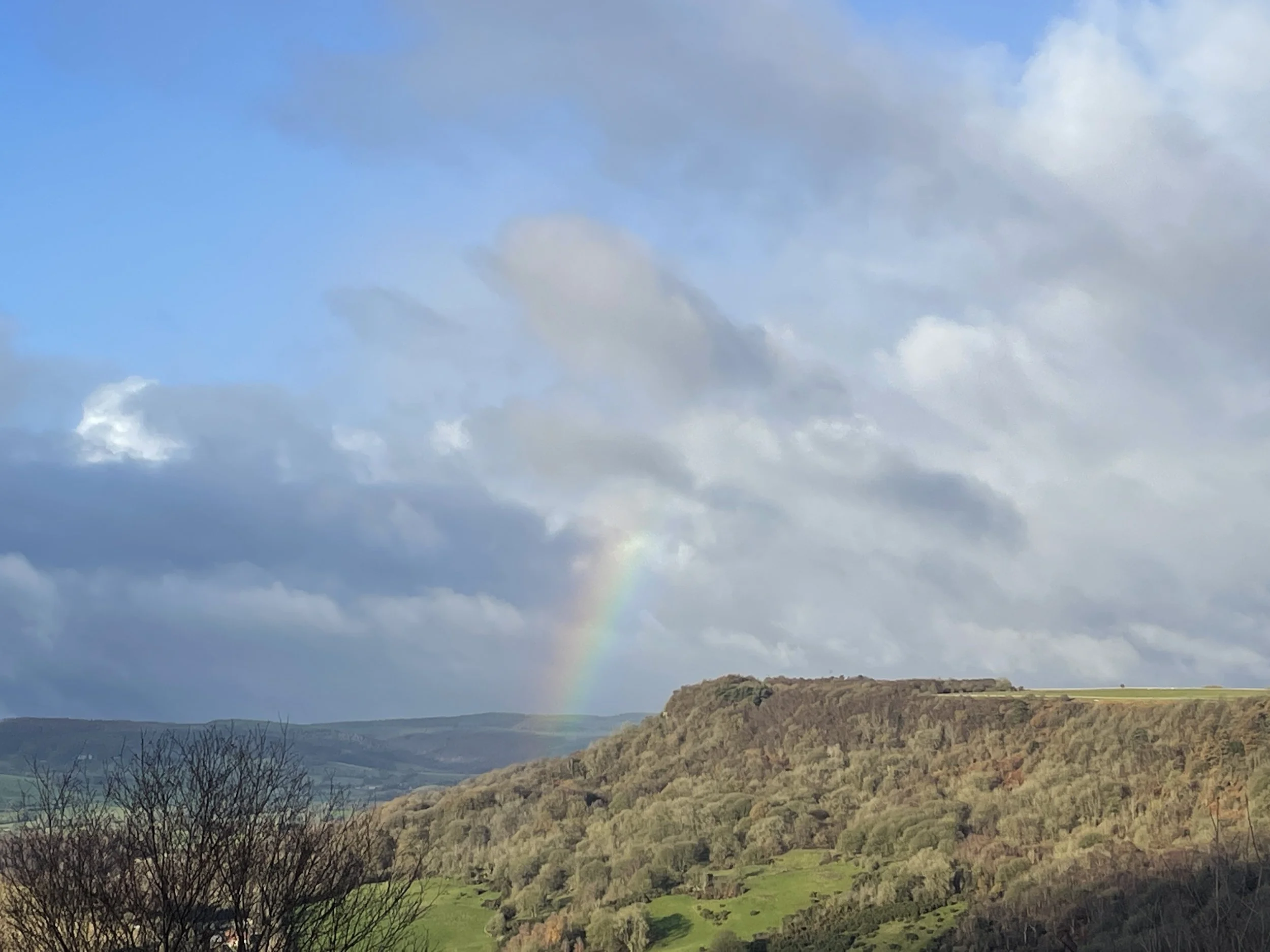Increasing Your Emotional Intelligence: Choice
In December of 2021, a friend and I decided to go for a hike on the White Horse Trail in the UK. Three things happened that day to remind me of the awesome power of personal choice.
The first part of the journey was lovely. An easy hike along the top of an escarpment with infinite views of the English countryside. But where was the horse? As we reached the end of the trail, I couldn’t help but wonder about the white horse. Then a sign told us that we were standing right on top if it. A set of 127 stairs led down the cliffside and, apparently, you could take another trail down below back to the starting point to complete the loop. My friend decided to take the high road back the way we came. I took the low road.
Finding the horse was easy (and perhaps a little unimpressive). Finding my way back to the starting point was not. It turns out that England is rather damp. The path was muddy and not nearly as well marked as the high road had been. There were several trails branching off and one of them seemed to be heading in the right direction. My gut told me to go that way, but a little wooden arrow posted in the ground told me to go left. I went left.
Expectations
Reality
The path was slick and hard to follow. I knew immediately that I wasn’t headed in the right direction, but I chose to keep going. It began to rain. Of course it did…I was in England! The little wooden arrows kept pointing to the left. After another 20 minutes of walking through ankle deep mud, I began to feel some emotions. The butterflies in my stomach told me I was anxious. The warmth in my face and the tension in my hands told me I was angry. I had a little conversation with myself.
“Are you seriously lost in the woods on a day hike? I thought you were an outdoor professional?”
“Well yes…kind of. But if I really need to, I can always head back the way I came and get back on the high road.”
“So why are you still going this way? You know this is not taking you in the right direction.”
“Because I’m having an adventure!”
As last those words crossed my mind, I laughed out loud. I love adventures! Suddenly my mindset shifted. I was having fun. At the same time, I came upon two blank wooden arrows. One of them pointed left and one of them pointed right. I turned around.
After a few minutes of backtracking, I ran into a group of people who had made exactly the same mistake I had made (following those stupid wooden arrows). This group of wet and disheveled hikers was a family and included at least 3 generations as far as I could tell. They looked at me as if to say, “why are we doing this?”
I assured them that this route would not lead them back to the trailhead we were all seeking. Together, we walked back to that first junction. The one that my gut told me I should have taken. We tried it out. It was the correct path. The rain subsided and the sun even began to emerge. I decided that the purpose of my little adventure was to help this family get where they were trying to go. Mission accomplished!
It really was a beautiful hike
So how does this all relate to emotional intelligence? It’s about the choices that I made along the way. First, I chose not to listen to my intuition. I convinced myself that the logical choice was to follow the posted signs. Had I been on the upper trail, that would have made sense. That trail was well marked, but this was not the same trail. Remember, our bodies have important information to offer us when it comes to making decisions. In addition to the myriad of emotions and bodily sensations that accompany them, our senses may also be picking up signals that we are not consciously aware of. In this situation, my ‘gut feeling’ to go straight instead of following the arrow to the left may have been influenced by my innate sense of direction, the barometric pressure change indicating rain, perhaps a map I had seen earlier but forgotten about. If we can accurately discern what our intuition is telling us, we should strive to pay attention.
The next choice I made was in how I chose to engage with the voice in my head. This voice may be influenced by a variety of factors. My upbringing, my education, my experiences, etc. But it is still MY voice and I am the only one who has any control over it. I chose to stand up for myself in the face of fear and doubt. I love adventures and no voice in my head is going to try and tell me I don’t. Positive self-talk is one of your greatest tools when it comes to shifting perspective or simply focusing on what’s good.
Finally, I chose to make meaning from my experience when I helped that family get back on the right trail. Locus of control is the degree to which people believe that they, as opposed to external forces (beyond their influence), have control over the outcome of events in their lives. A characteristic of high emotional intelligence is an internal locus of control or sense of agency over one’s own life. That includes the ability to draw meaning from our experiences. I chose to believe that my purpose that day was to be there for that family when they needed a helping hand. That choice (and it is nothing more than a choice) added color, meaning, and depth to my experience.
“OK, don’t panic…you got this.”
I’m happy because I made meaning from the experience
Now it’s all rainbows and sunshine
If you experienced this same sequence of events, what meaning would you draw from it? Does your locus of control lean more internal or external? Is your self-talk uplifting or degrading? Do you believe people are mostly just on a mission to piss you off, or do you choose to see others as simply doing the best they can with what they’ve got? One of the great gifts of being human is that we get to make these choices every day and, if our choices are not serving us, we can change them in an instant.
Dan Miller is the founder of Fifth Pillar Consulting and believes that developing our emotional intelligence is a good idea.

